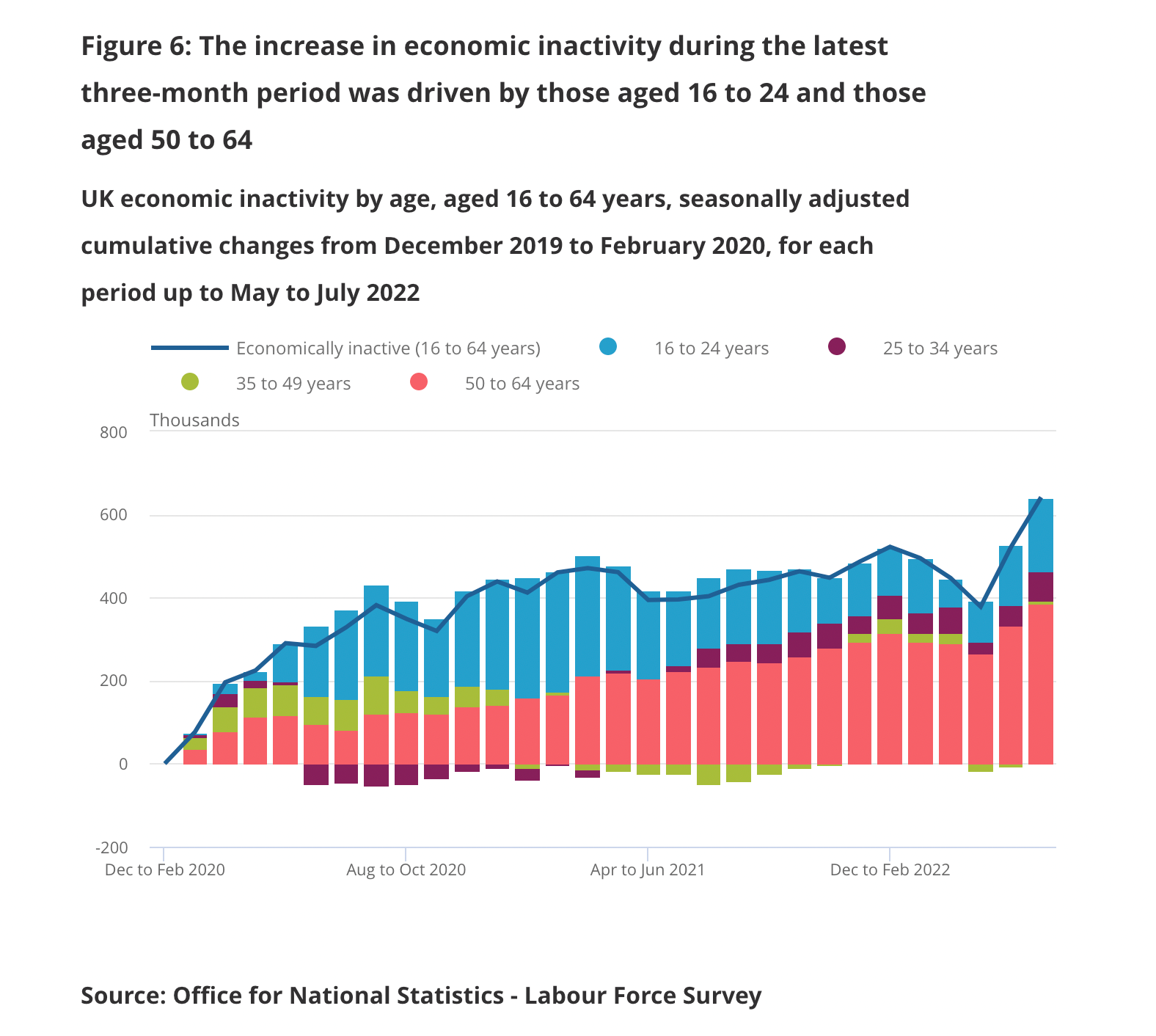New data could prompt aggressive moves from the BoE and the Fed next week
Making sense of the latest trends in property and economics from around the globe
4 minutes to read
Inflation
Yesterday's hotter-than-expected US inflation reading set off a rout in global stock markets. Wall Street suffered its worst day since June 2020 and losses spread through Japan, Hong Kong and Australia overnight.
Indexes for rent, food and medical care all rose to such a degree that they offset a 10.6% decline in the price of fuel. As the FT's Robert Armstrong notes, there was little in the report that fundamentally changes the balance of risks facing the market, rather it extinguished what had been growing optimism that inflation was on the cusp of meaningfully receding, allowing the Fed to slow the pace of rising interest rates - a viewpoint Fed officials have been seeking to challenge for several weeks. "Tuesday’s rout looks less like the absorption of new information than a loss of naivety," Mr Armstrong concludes.
Traders are now betting that the Fed will hike by three quarters of a percentage point when it meets next week. Pricing suggests policy rates could peak at 4.3% early next year before receding to 3.8% before the year is out.
That would exert pressure on housing market activity through the year and into 2024. Existing home sales have now fallen for four straight months. Fannie Mae's National Housing Survey, out last week, shows a fairly rapid increase in consumers expecting prices to fall over the next twelve months.
More inflation
The UK's index of consumer price inflation eased slightly to 9.9% during the year to August, down from 10.1% in July, according to official figures out this morning. That was broadly in line with expectations and there are silver linings, though none are likely to move the needle at the Bank of England.
The Monetary Policy Committee's next vote on interest rates, originally scheduled for tomorrow, will now be published next week. Investors are divided as to whether that will be a 0.5% or 0.75% hike. A majority of economists (40 of 47) polled by Reuters are expecting 0.5%.
Record numbers of homeowners are now taking out five-year fixed mortgages in an attempt to gain some certainty over their outgoings. Five-year deals now make up 60% of all sales, up from 45% last year, according to Nationwide data covered in the Telegraph. That's the highest level since records began in 2010.
"People are going, ‘how long can I get this current rate for? Because I can only see it going up’,” Simon Gammon of Knight Frank Finance tells the paper.
Prime central London
Factors fuelling uncertainty as to the path of interest rates and nature of economic activity include new - or a lack of new - policies from a Liz Truss government. As Tom Bill notes in his analysis of the outlook for Prime Central London this morning:
"Truss ruled out a windfall tax on energy companies at her first Prime Minister’s Questions. Encouraging inwards investment is clearly a key plank of the government’s economic policy and proposed corporation tax rises will also be scrapped. That sends an apparently benign message to the rest of the world about the merits of investing in London, including its property market."
Indeed, a short-term boost appears likely from a government already in pre-election giveaway mode. However, there are longer term economic risks from a bout of short-term fiscal largesse, Tom concludes. Average prices in prime central London rose 2.8% in the year to August, unchanged on the figure in July.
Prime renting
As the new academic year gets underway, demand continues to far outweigh supply in the lettings market in London and the Home Counties. While new supply was a third below the five-year average in August, the number of new prospective tenants registering was 75% higher. You can read the full analysis here.
For landlords, the clear conclusion is that it won’t become a tenants’ market any time soon. For tenants, there is still a need to move quickly and decisively due to the stock shortage.
While transaction volumes and prices in the sales market remain robust, there is less chance of so-called accidental landlords emerging to redress the imbalance. These are owners who fail to sell for the desired asking price and instead decide to let out their property.
The UK's changing workforce
The UK economy grew at a sluggish 0.2% during July, according to official figures published on Monday. Construction shrank 0.8%, capping a broadly flat quarter for the economy.
The unemployment rate now sits at 3.6%, the lowest since 1974, according to a separate release from the ONS. The reduction in unemployment was driven by the rising rate of economic inactivity, rather than signs of economic strength, due in part to rising numbers of people opting to move into education.
That's likely to feed into what were already rising student numbers, driven by record participation rates among school leavers in England, Wales and Northern Ireland for the 2022/2023 academic year.

In other news...
Globalisation is not dying, it’s changing (FT).